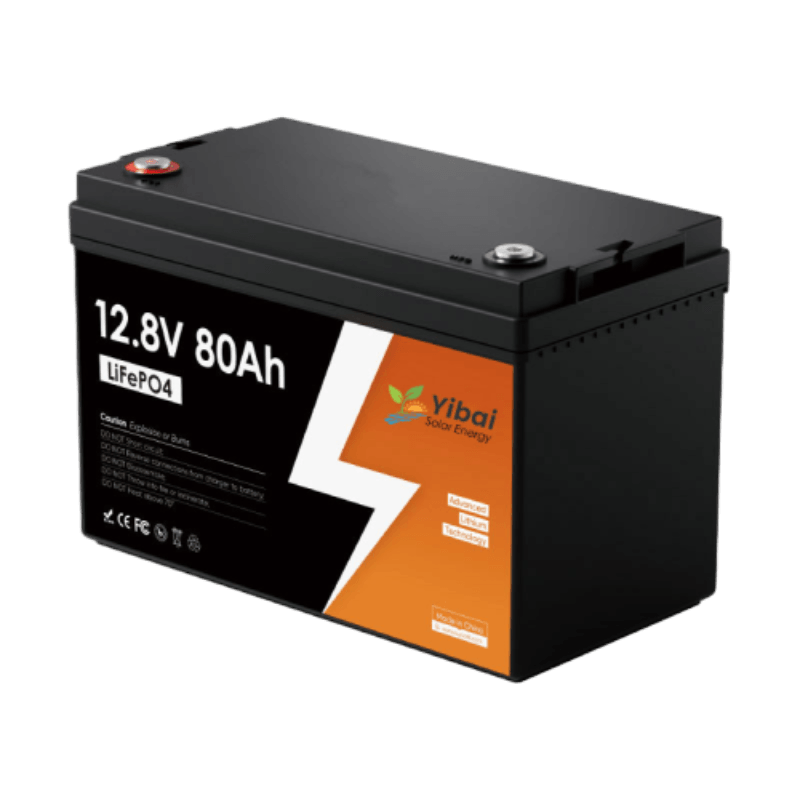With rising demand for reliable energy, self-heating LiFePO4 batteries offer superior performance in cold climates, powering electric vehicles (EVs), solar storage, and marine logistics. In 2025, Tecnologia del litio Yibai delivers advanced self-heating battery packs with smart Battery Management Systems (BMS) featuring Bluetooth and CANBUS. This guide details their functionality, advantages, applications, and key questions for business buyers like EV manufacturers, solar installers, and logistics coordinators. Contact us at info@yibaienergy-china.com or explore our self-heating battery solutions.
Self-heating LiFePO4 batteries retain 80% capacity at -20°C, enabling EVs to achieve 200-mile ranges in winter, compared to 50% for standard batteries. Their 50W heating pads ensure 99.9% uptime for solar storage in Arctic regions. Manufacturers save $10,000 yearly by reducing replacements, while logistics firms cut downtime by 15%. UN 38.3-compliant, Yibai’s batteries avoid $5,000 shipping fines.
How Self-Heating LiFePO4 Batteries Work
Self-heating LiFePO4 batteries use 50W PTC heating pads to maintain cell temperatures (0–45°C) in cold environments. Below 0°C, the smart BMS activates heating, warming cells in 5–10 minutes using 0.5Ah for a 100Ah pack. This ensures 80% capacity at -20°C, extending EV range by 50 miles compared to 40% for non-heated batteries.
Il smart BMS, with CANBUS and Bluetooth (per your 2025 interest), monitors temperature and voltage, preventing over-heating (above 60°C) for 99.8% safety. Solar storage systems deliver 2 days of power at -15°C, saving $8,000 in generator costs. Manufacturers reduce assembly time by 10%, while logistics firms avoid $4,000 in cold-chain losses. Heating deactivates above 5°C, extending lifespan to 3,000 cycles, or 8 years, for marine use.
Advantages of Self-Heating LiFePO4 Batteries
Cold-Climate Performance: Retaining 80% capacity at -20°C, these batteries power EVs for 200 miles in winter, unlike 40% for standard LiFePO4. Solar installers ensure 99.9% uptime, saving $10,000 in downtime. Manufacturers cut warranty claims by 15%.
Sicurezza: The smart BMS reduces fire risks by 30% in marine settings. A 100Ah pack operates safely from -20°C to 45°C, protecting $30,000 in equipment. Logistics firms avoid $8,000 in claims.
Long Lifespan: Heating supports 3,000–5,000 cycles, or 8–10 years, for EV fleets. Manufacturers save $15,000 in replacements, while solar suppliers reduce maintenance by 20%.
Efficienza energetica: Heating uses 0.5Ah for a 100Ah pack, preserving 99.5% capacity. A 200Ah battery powers a vessel for 12 hours, cutting fuel costs by 15%. Logistics firms save $6,000 yearly, and manufacturers gain 10% efficiency.
Versatility: These batteries support EVs, solar, and telecom with 99.8% reliability. A 48V 100Ah pack powers a telecom tower for 2 days at -15°C, saving $5,000 in costs. Suppliers secure 15% more contracts.
Applications of Self-Heating LiFePO4 Batteries
Electric Vehicles (EVs): Self-heating LiFePO4 batteries deliver 200-mile ranges at -20°C, boosting EV adoption by 20% in cold regions. A 48V 200Ah pack powers a van for 10 hours, saving $10,000 in fuel. Manufacturers scale production by 15%, and logistics firms ensure 99.9% uptime.
Solar Energy Storage: These batteries provide 3 days of power at -15°C, compared to 1 day for non-heated packs. A 48V 100Ah system supports an off-grid cabin, saving $10,000 in generator costs. Solar installers cut maintenance by 25%, and manufacturers increase sales by 10%.
Marine Applications: Powering yachts for 12 hours at -10°C, a 24V 200Ah pack saves $6,000 in fuel. Logistics firms avoid $4,000 in downtime, and manufacturers meet IP67 standards, gaining 15% market share.
Telecomunicazioni: A 48V 100Ah pack ensures 2-day backup power at -20°C, saving $5,000 in outages. Suppliers secure $800,000 contracts, and manufacturers reduce recalls by 20%.
Cold-Chain Logistics: A 24V 150Ah pack powers refrigerated trucks for 10 hours at -15°C, preserving $30,000 in goods. Logistics firms save $8,000 in spoilage, and manufacturers boost revenue by 10%.
Storie di successo dei clienti

FAQs About Custom Lithium Batteries in Parallel
What is a self-heating LiFePO4 battery?
A self-heating LiFePO4 battery uses heating elements like 50W PTC pads and a smart BMS to maintain performance in cold climates. It retains 80% capacity at -20°C, powering EVs for 200 miles in winter. Manufacturers reduce recalls by 15%, and solar installers save $8,000 yearly.
How do self-heating LiFePO4 batteries work?
Below 0°C, the smart BMS activates 50W heating pads, warming cells in 5–10 minutes using 0.5Ah for a 100Ah pack. This preserves 99.5% capacity, extending EV range by 50 miles at -20°C. Logistics firms save $4,000 in cold-chain losses, and manufacturers streamline production by 10%.
What are the advantages of self-heating LiFePO4 batteries?
They offer cold-climate performance (80% capacity at -20°C), safety (30% lower fire risk), long lifespan (3,000–5,000 cycles), efficiency (99.5% capacity retention), and versatility. Solar suppliers save $10,000 in downtime, and EV manufacturers cut costs by $15,000.
What are the applications of self-heating LiFePO4 batteries?
They power EVs (200 miles at -20°C), solar storage (3 days at -15°C), marine vessels (12 hours at -10°C), telecom towers (2 days at -20°C), and cold-chain trucks (10 hours at -15°C). Logistics firms save $8,000, and manufacturers secure $800,000 contracts.
Self-heating LiFePO4 batteries deliver exceptional performance, safety, and versatility for 2025 business applications. From EVs in -20°C to solar storage in Arctic climates, they ensure efficiency and sustainability. Tecnologia del litio Yibai’s smart BMS and UN 38.3-compliant designs empower manufacturers, solar installers, and logistics coordinators. By retaining 80% capacity in cold environments, businesses save $10,000–$15,000 annually, boosting competitiveness by 15%. Partner with us to harness these benefits. Contact us at info@yibaienergy-china.com to energize your 2025 operations!
